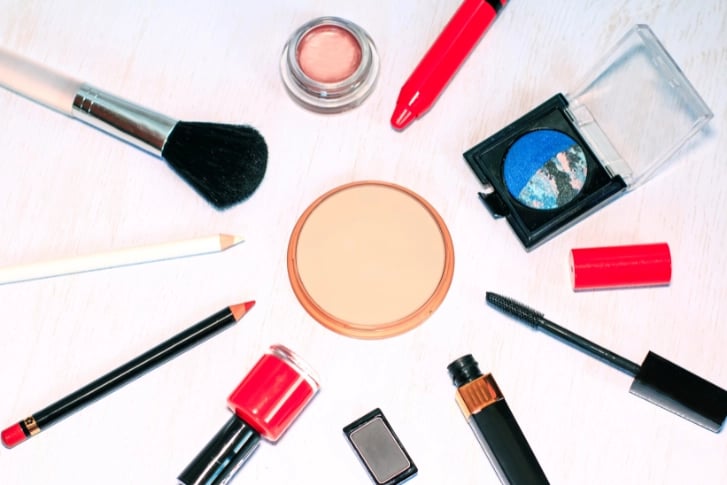MoCRA enacts the most significant expansion of the US FDA to regulate cosmetics since 1938. After 85 years of effectiveness the Modernization of Cosmetics Regulation Act of 2022 or "MoCRA" was refreshed. As enacted by Congress as part of the 4,155 pages of the Consolidated Appropriations Act in December of 2022 and was signed into law by President Biden on December 29, 2022.
The details of these new requirements are found in the Consolidated Appropriations Action under Subtitle E – Cosmetics, SEC. 3501, pages 3,576-3,612.
The act covers changes to mandatory reporting and regulatory oversight for cosmetics companies, new product registration, ingredient listing requirements, the establishment of Good Manufacturing Practices (GMP), and the reporting of Serious Adverse Events.
MoCRA does not immediately change anything. MoCRA provides dates for compliance and directs the FDA to issue guidance and final rule changes. The FDA is tasked with providing more information and providing compliance guidance.
Most small businesses will be exempt from some of the major changes. These include longer timelines for implementation, and special considerations for budgets and size.
Highlighting some MoCRA Changes:
Section 605: Adverse Events
Adverse events will be required to be reports and records maintained. Adverse Event complaints will be required to be received via physical address, telephone number, and electronic format which will be required to be listed on labels.
Upon receipt of an adverse event a report will be required to be submitted to the FDA within 15 days. New medical information received regarding the adverse event must also be submitted within 15 days of receipt. Adverse event reports will be required to be maintained for at least 6 years, however small business may qualify for a reduced three-year period if their annual sales for the previous three-year period is less than $1,000,000 and do not make any of the following products:
- Cosmetics that come into contact with mucus eye membranes of the eye
- Cosmetics that are injected
- Cosmetics that are intended for internal use
- Cosmetics that intend to alter the appearance for more than 24 hours
Section 606: Good Manufacturing Practice:
MoCRA provides that Good Manufacturing Practice (GMP) will be a requirement. The FDA has been tasked with issuing guidance on the required GMP guidelines. Currently the FDA only promotes their GMP Guidelines/Inspection Checklist and their November 2018 Draft Guidance for Industry for Cosmetic Good Manufacturing Practices. ISO 22716:2007 Cosmetics – Good Manufacturing Practices (GMP) also provides insight to what the new requirements will look like. The new guidance from the FDA is also required to include simplified GMP practices for smaller businesses to ensure that these regulation do not impose undue economic hardship for smaller businesses.
ProPharma can help! Learn more about our Quality & Compliance Consulting, understand current GMP requirements and proposed new guidelines or Contact Us today to speak with an expert.
Section 607: Registration and Product Listing
MoCRA requires that your facility and product listings be registered with the FDA. Existing facilities have one year to comply with the facility registration and new facilities are required to register within 60 days of engaging in any manufacturing or processing of cosmetic product. Facility registration renewal is required every two years.
Cometic Contract Manufacturers are also required to register and any changes to the facility are required to be reported within 60 days.
Submissions for existing products are required to be submitted with one year and must include the ingredients, responsible party and facility in which it is manufactured. New products are required to be submitted within 120 days.
ProPharma Can Help! Learn more about our Regulatory Sciences Consulting team and how we will work with you to ensure you have your facility and product registration requirements met.
Section 608: Safety Substantiation
MoCRA requires that a responsible person for a cosmetic product substantiate the safety of cosmetic product and maintain adequate records. Adequate Substantiation is a requirement and is defined as testing, studies, research or other evidence to support the product’s safety.
Section 609: Labeling
MoCRA requires a few changes to existing labeling requirements. The FDA is also required to provide additional guidance, which is not yet available.
- Electronic contact information for the responsible party
- Fragrance allergens are required to be on the label
- Professional-use products are required to be identified as for licensed professionals only.
Sections 610 and 611 Records and Mandatory Recall Authority
MoCRA authorizes the FDA to inspect facilities and their records and provide the FDA with the ability to enforce mandatory recalls on products which may be adulterated, misbranded or pose a public health risk.
Sections 612 and 613 Exemptions
Section 612 details the exemptions for small businesses etc. Section 613 provides clarification that drug requirements must be met if the product qualifies as a drug.
Section 614 Preemption
MoCRA preempts state or local laws that differ from the federal framework on registration, product listing, good manufacturing practices, records, recalls, adverse event reporting or safety substantiation.
If you have additional questions in understanding if your systems are ready for these changes, contact ProPharma to learn how our compliance consultants can help you navigate your Quality Management Systems (QMS) alignment.
Contact Us
TAGS: Food & Drug Administration (FDA) Modernization of Cosmetics Regulation Act (MoCRA)

